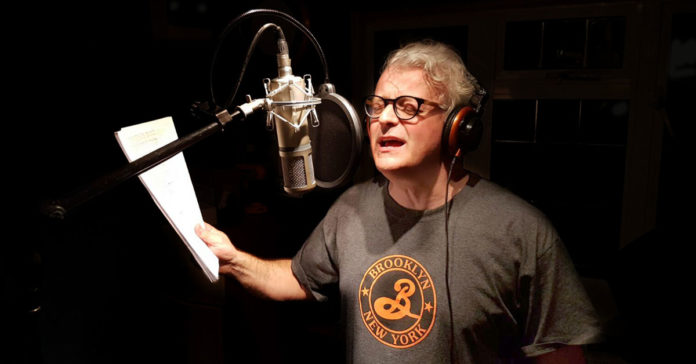
Ashkenazi based shul services can be enhanced by a sing-along prayer book that is proving a hit domestically and in far reaching corners of the Jewish world.
“We Sing We Stay Together: Shabbat Morning Service” is the brainchild of Londoner Richard Collis who for over 20 years wanted to produce an educational resource to aid Shabbat morning service. Payers appear ‘word for word’ as in an Artscroll Ashkenaz siddur.
The easy to read prayer songbook includes a transliteration into English with a service explanation.
It is available in Russian, French, German, Spanish, Portuguese (BRA) and Chinese on major online bookstores. A double CD is also available to purchase while 64-four tunes can be downloaded free from streaming services and can be enjoyed on YouTube.
Material in the songbook has been well received.
“It faithfully follows the siddur text from Nishmat col Chai to the Adon Olam, every word of every prayer,” explained Richard. “The music and singing emphasises clarity, melody and Israeli pronunciation makes it easy to understand.”
He added, “The idea was not to have special effects, or try be the next Frank Sinatra, it was designed as a learning tool for anybody. No prior knowledge is required.”
Richard attended a local United Synagogue in north-west London in the 1970s. Struggling to participate in a Shabbat service, like many friends, he did not attend synagogue.
Travels in the Far East as a teenager followed, intensifying the feelings. Richard learnt to speak Hebrew but frustrations continued.
Richard eventually came across Rabbi Steve Ginsberg Beirav Carlebach Synagogue in Safed and Rabbi Menachem Salaman of Stamford Hill.
Both inspired the entrepreneur and agreed to be part of the self-funded project.
Recording melodies with Edgware-based vocal coach, producer and composer Yossi Yoffe, a two-hour double-album became a reality.
Most songs are traditional or Carlebach melodies, though some are adapted close to original tunes.
So is Richard pleased with the finished material of books and CD’s?
“I am delighted the objective has been met,” he enthused.
“The overwhelming majority of diaspora Jews, like me, grew up not knowing anything. I was only capable of making some sounds out of the words. I needed a prayer book with phonetics clearly written in association with an audio musical rendition, (audio only would have been boring), so it could be easily followed and learned.
“I made sure the translation was modern English, that someone like me could relate to and positioned, so it was easy on the eye. The phonetic songbook is a siddur in its own right because it explains the service as well.
“The idea is simple. No prior knowledge is required, if you have this book in your hands you can follow and understand a service and be part of it. The book is available in many languages.”
What has the response been like since its publication?
“This is not a seasonal project,” Richard explained. “More and more people are learning the prayers to these authentically Jewish sourced melodies because they can, because it is so easy. Once you have learnt a tune to the words of a prayer you will never forget it.
“It is available for free so many people are downloading the phonetics and translations from the web sites and listening to the music on YouTube, Apple and so on.
“It takes time to get the message out but it can only grow and it is growing.”
Material is available at the Israeli Ministry of Diaspora website. In Uganda, communities have sent Richard videos of their efforts as they were enthused about being able to add melodies to a Shabbat morning service.
“It is out of this world and warms the heart,” he says. “It is very encouraging people are downloading free sheet music. A number of Jewish music teachers have also realised they can teach music with children learning the prayers and Hebrew at the same time.”
A question Richard is often asked is about a favourite track.
“I love them all,” he said. “There are 64 tracks, but really we are talking about 64 prayers written by our greatest ever scholars. They are so beautiful that not to sing them with understanding from the heart on Shabbat is just so sad.
“Some of the prayers are happy, some adoring, some beseeching, some sad, some show vulnerability, many about love, kinship, kindness and respect for goodness. The Shabbat prayers encapsulate the humanity of Judaism and our total devotion, gratitude and love for Hashem.
“Each is a special unique blessing and each is so beautiful and thankfully Hashem has made love infinite so I do not have to concern myself with looking for an answer.”
Richard’s lifelong project goes back to his barmitzvah when he did not know what was going on.
“This project is about outreach,” he said. “Nearly all of my childhood friends have dropped off the Jewish world, there is no continuity and it saddened me.
“I wanted to give them and Jews like me an easy way to connect and benefit from an amazingly beautiful and rich heritage.
“This is about no to exclusion and yes to participation. It is about love of Israel and Jewish continuity.” Details: www.wesingwestaytogether.com









